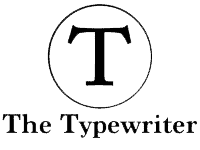Japanese voters will go to the polls later today in a snap election called by Prime Minster Shinzo Abe. Economic issues will once again be central to the outcome, as Abe seeks a mandate to lift the local economy out of yet another recessionary period. Energy generation and national defence are also on the agenda, as Abe’s administration aims to restart Japan’s nuclear power program and tries to address ongoing territorial disputes with China.
Shinzo Abe kicks off his campaign with a pledge to rebuild the economy, expand the military, and reopen nuclear power plants
Economy:
Japan’s economy has slumped back into recession, and economic issues remain the biggest problem faced by many voters. Of particular concern are living standards and the cost of living, which have been adversely affected by the economic slump. Locals in Osaka have told The Typewriter that there is great uncertainty and general fear relating to the consumption tax, which will increase the cost of living and which Shinzo Abe has now promised to raise by 2017. Prime Minister Abe has called this election as a litmus test to see if he can build a mandate for postponing such an increase; indeed, he remains adamant that an increase from 5% to 8% will derail any hopes of robust growth in the Japanese economy.
Nuclear Power:
In the wake of the 2011 Tohoku earthquake and subsequent tsunami-related incident at the Fukushima reactor, nuclear power has become another key issue at this election. Shinzo Abe has vowed to bring almost all of Japan’s reactors back online – including a reactor in the Sendai region hardest hit by the 2011 natural disaster – which has only exacerbated ongoing fears amongst locals about the perceived dangers of nuclear power generation.
Defence and foreign relations:
Japan has historically had a complicated relationships with its close neighbours China and South Korea. A controversial reinterpretation of Article 9 of the Japanese Constitution put many of its neighbours on edge, with surrounding governments concerned over the idea of a militarised Japan. The reinterpretation allows for the use of collective self-defence, and for Japanese self-defence personnel to join and assist allied forces where necessary. Historical tensions between Japan and its neighbours have weighed heavily Abe’s response to what he has deemed a “rapidly changing security environment”, and with opponents criticising many of Japan’s recent policy maneuvers in defence and foreign relations, Abe has turned this election into a referendum on whether to stay the course.
Japan once again finds itself at a crossroads. Can Prime Minister Shinzo Abe gain the mandate he needs to reinvigorate Japan?
The Typewriter has been speaking to voters across the country, and those key issues of defence, power generation and the economy have been constant themes across much of the electorate. One man summarised it thus:
“Wherever you go in the country they say the same thing… our way of life is changing. Whichever leader they elect there will be changes to the economy and diplomacy”
From the urban conglomerations of Osaka and Tokyo, to the regional cities of Odawara, it is clear that many Japanese voters are concerned about the economy, about the risks of nuclear power, about their plans for an expanded military presence, and about the ongoing territorial disputes with China. Although a change of government is highly unlikely, voters will still have their say on Japan’s future and the uncertainty they face over the next four years. Today they will demonstrate their level of confidence in Shinzo Abe’s plan for that future.
